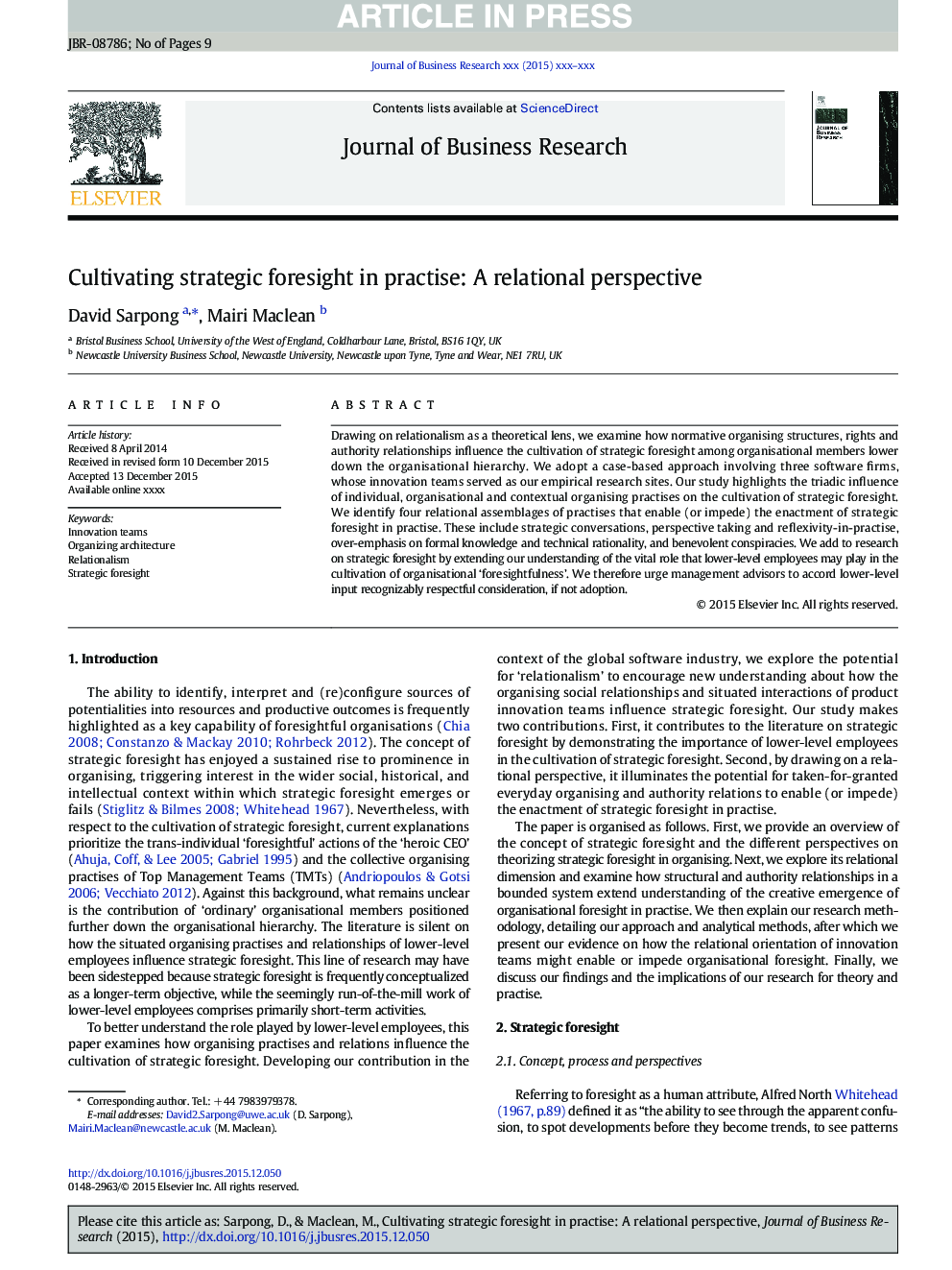| Article ID | Journal | Published Year | Pages | File Type |
|---|---|---|---|---|
| 10492592 | Journal of Business Research | 2016 | 9 Pages |
Abstract
Drawing on relationalism as a theoretical lens, we examine how normative organising structures, rights and authority relationships influence the cultivation of strategic foresight among organisational members lower down the organisational hierarchy. We adopt a case-based approach involving three software firms, whose innovation teams served as our empirical research sites. Our study highlights the triadic influence of individual, organisational and contextual organising practises on the cultivation of strategic foresight. We identify four relational assemblages of practises that enable (or impede) the enactment of strategic foresight in practise. These include strategic conversations, perspective taking and reflexivity-in-practise, over-emphasis on formal knowledge and technical rationality, and benevolent conspiracies. We add to research on strategic foresight by extending our understanding of the vital role that lower-level employees may play in the cultivation of organisational 'foresightfulness'. We therefore urge management advisors to accord lower-level input recognizably respectful consideration, if not adoption.
Keywords
Related Topics
Social Sciences and Humanities
Business, Management and Accounting
Business and International Management
Authors
David Sarpong, Mairi Maclean,
